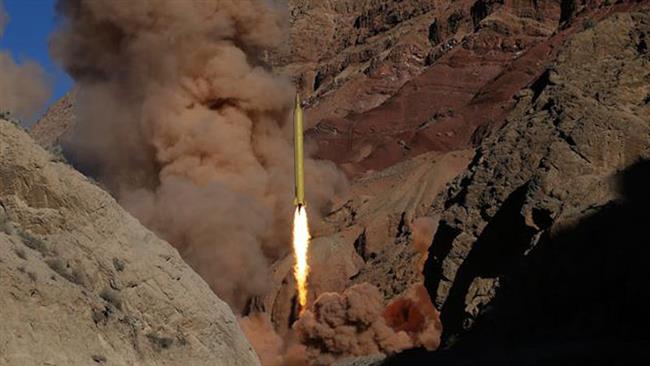
RNA - “Missile defense programs of the Islamic Republic of Iran are completely legitimate and are not even at odds with [the United Nations Security Council] Resolution 2231,” Iranian Foreign Ministry Spokesman Bahram Qassemi said on Friday in reaction to the US Senate's decision to impose new sanctions on Tehran.
“No measure will be able to deny the Islamic Republic of Iran from its legitimate defense right,” he added.
The US Senate on Thursday overwhelmingly passed a bill imposing sanctions on Iran over its missile program among other things.
The legislation still must pass the Republican-led House of Representatives and be signed by President Donald Trump to become law.
The Iranian spokesperson rejected as “completely unjustified and illegal” allegations leveled in the bill about the country’s missile capabilities.
“The Armed Forces of the Islamic Republic of Iran will bravely defend the security and interests of their own country and such measures will not create the slightest disturbance in this path,” Qassemi pointed out.
He noted that the US Senate’s new move was not “unpredictable” due to the history of Washington’s enmity toward the noble Iranian nation, adding it is in line with the US acts of hostility toward the Islamic Republic.
He urged the US administration to completely and sincerely fulfill its commitments under the nuclear agreement, known as the Joint Comprehensive Plan of Action (JCPOA), reached between Iran and the P5+1 group of countries, including the United States.
Administrations are not authorized to shun their legal responsibilities by resorting to their internal regulations, the Iranian spokesman said.
“As the Islamic Republic of Iran has so far fulfilled its commitments precisely and the International Atomic Energy Agency (IAEA) has also repeatedly confirmed this, all the signatories to the JCPOA are duty-bound and obliged to meet their commitments completely,” Qassemi added.
He emphasized that Iran closely examines the content and ratification process of the bill and said the Iranian committee tasked with monitoring the JCPOA implementation would resolutely adopt proportionate and reciprocal measures to fulfill the country’s national interests.
Under the JCPOA signed in 2015 between Iran and the five permanent members of the United Nations Security Council - the United States, France, Britain, Russia and China - plus Germany, Iran undertook to put limitations on its nuclear program in exchange for the removal of nuclear-related sanctions imposed against Tehran.
Resolution 2231 was adopted on July 20, 2015 to endorse the JCPOA.
Under the resolution, Iran is “called upon” not to undertake any activity related to missiles “designed to be capable of” delivering nuclear weapons. Iran says it is not involved in any such missile work and has no such warheads.
Washington has so far imposed two rounds of sanctions on Iran under the new US administration over the country’s missile work.
847/940